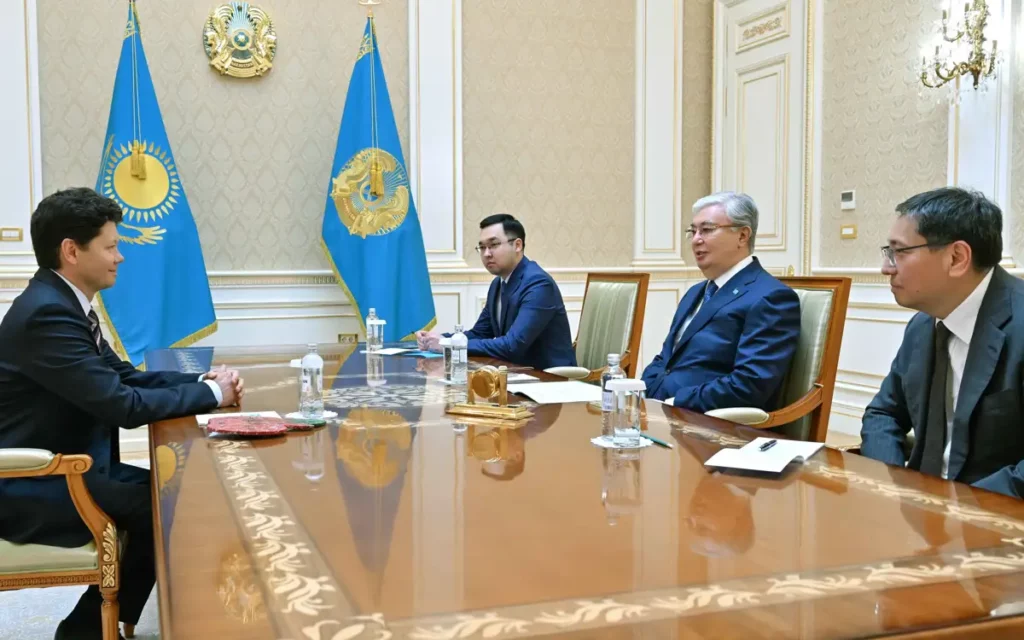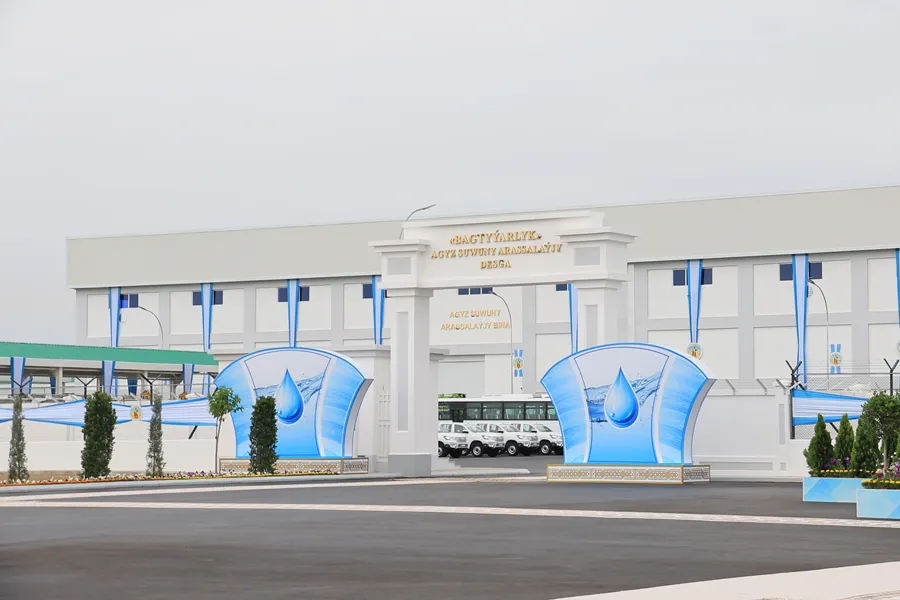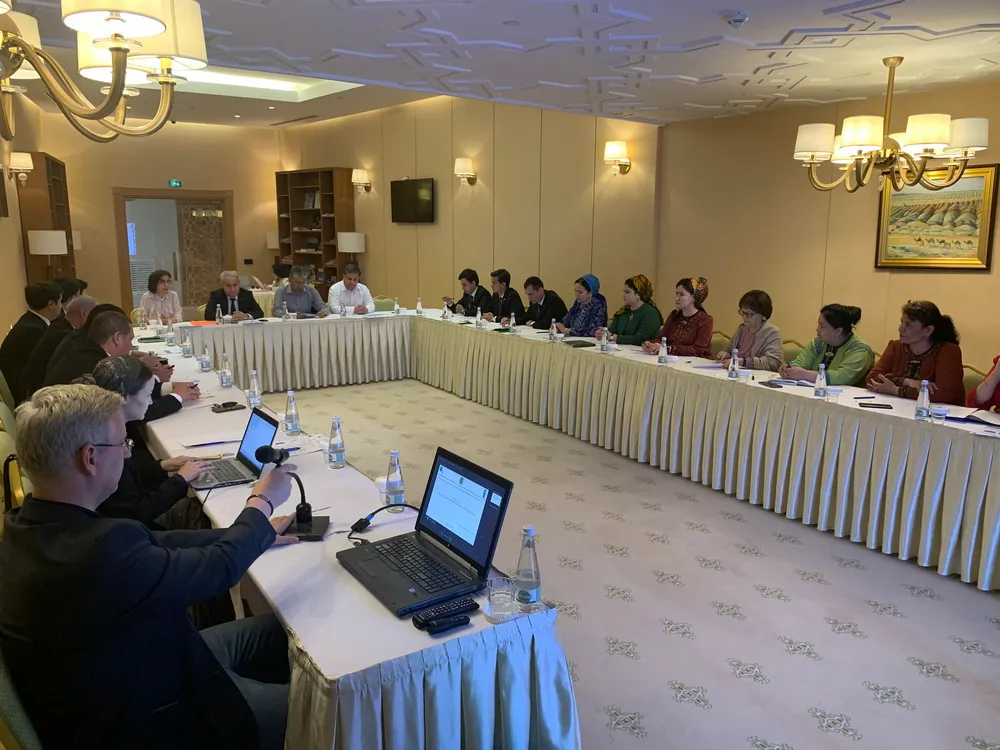Knowledge for Development: KOICA Tajikistan Workshop on Asian Civil Society Leadership and Smart Cities.
KOICA held a knowledge sharing workshop in Dushanbe, bringing together KOICA program alumni (2022-2024) from Tajikistan who shared experiences in various areas including smart cities, Asian civil society leadership, value-added agriculture, social economics and disaster response changing of the climate.
On April 30, 2024, in Dushanbe, five participants presented the results of their research, demonstrating their professionalism and expertise. This exchange of knowledge was an important step in enriching the experience and broadening the horizons of all participants.
Sungju Lee, Program Manager at KOICA, expressed her gratitude to everyone who participated in the knowledge sharing workshop.
KOICA (Korea International Cooperation Agency) is an organization created by the government of the Republic of Korea to strengthen cooperation with other countries by providing official assistance in the form of ODAs. Such assistance includes areas such as health, education, economic development, agriculture and infrastructure.
KOICA provides various cooperation programs, including long-term country projects, as well as technical assistance, humanitarian assistance and infrastructure development, with the goal of promoting sustainable development and promoting the well-being of partner countries.
“The knowledge exchange program assumes that graduates, returning to Tajikistan after studying in the Republic of Korea, share their accumulated knowledge. This is an important step in the development of the Republic of Tajikistan,” said Sonju Lee.
Smart Cities and Green Economy
Country Director of the KOICA Office in Tajikistan John Minient presented the training project of the seminar, followed by congratulatory speeches from Farrukh Khudoydodzoda, Head of the Department of International Relations of the Ministry of Education and Science of the Republic of Tajikistan, and Jonon Sherali, Head of the Asia-Pacific Division of the Ministry of Foreign Affairs of the Republic of Tajikistan.
Five graduates who completed the master’s degree program in 2024. These outstanding individuals are government officials from various ministries and departments of the Republic of Tajikistan who have been trained in prestigious educational institutions of the Republic of Korea, including Incheon National University, Korea Institute of Advanced Science and Technology, Sungkyunkwan University, Ajou University and Gyeongbuk University.
They presented their research in various fields, which aroused interest among all participants in the event.
The first session was dedicated to the presentation by Matluba Azizuloeva from the Agency for Hydrometeorology of the Environmental Protection Committee of the Republic of Tajikistan on “Responses to Climate Change”.
Then Firdavs Farrukhzod from the Ministry of Economic Development and Trade of the Republic of Tajikistan gave a presentation on the topic “Social Economy”, and Masrur Barotov from the same department shared his research in the field of “Smart Cities”, based on his thesis “Smart City of Asia”.
Davlati Lutfullo from the Ministry of Agriculture of the Republic of Tajikistan gave a presentation on “Asia High Value Added Agriculture” based on his training in the program “High Value Added Agriculture Asia”.
The last session was conducted by Saifidin Saifidinov, who studied the course “Leadership in Asian Civil Society”.
Important lessons and opportunities ahead
In the closing speech, Isfandiyori Sherali, Program Officer of the KOICA Office in Tajikistan, provided an overview of the KOICA scholarship program.
“KOICA graduates can continue their interaction with us after returning from the Republic of Korea. We plan to create a community of KOICA graduates from the Republic of Tajikistan who will be able to actively contribute to the development of cooperation between the Republic of Korea and the Republic of Tajikistan through their work in their designated ministries,” emphasized Isfandieri Sherali in his report.
“Today’s seminar was an important source of information about the KOICA CIAT program. Having already completed master’s programs at various Korean universities, we were able to share our knowledge, impressions and experience, which will be incredibly useful for future candidates.

Studying the experience of socio-economic development of the Republic of Korea should become one of the priorities for our country, taking into account our common characteristics in various fields,” Firdavs Farrukhzod, an employee of the Ministry of Economic Development, shared his thoughts.
“The knowledge exchange seminar in Dushanbe left unforgettable impressions and important lessons for us, graduates of the KOICA program from Tajikistan,” says Masrur Barotov, an employee of the Ministry of Economic Development and Trade. – It was not only a time for sharing experience and knowledge, but also an opportunity for inspiration and enrichment of our professional growth.
As we presented our research and projects in various fields, we felt proud of our accomplishments and excited to discuss with our peers. Meeting with representatives from various fields and exchanging ideas opened up new prospects for cooperation and development.”
“Today’s event was an opportunity for all graduates to share the knowledge they have acquired, and we also hope that this knowledge can be applied in Tajikistan,” said Sungju Lee, KOICA Program Manager.
“We leave the seminar with a feeling of confidence that the knowledge and experience gained will be an important contribution to the development of our country. We thank the organizers for the opportunity to be part of this wonderful event and are ready to look forward to new challenges and opportunities for growth and development,” emphasized Masrur Barotov.
About the CIAT program
The CIAT (Capacity Improvement and Advancement for Tomorrow) program is a KOICA initiative aimed at strengthening capacity and developing collaboration with partners in various countries.
CIAT offers short courses, lectures, exchanges of experience and other activities for participants from various countries to promote their professional growth and contribute to the development of their countries.
CIAT is coordinated and implemented by KOICA and the program covers various fields including management, economics, social sciences and technology.

In Korean, “CIAT” literally translates to “seed”. This term is chosen to symbolize that your capacity development efforts become the basis for planning and expanding future capabilities through national KOICA projects at a more global level.
The CIAT program offers short-term courses that typically last 2 or 3 weeks per year. Participants have the opportunity to listen to lectures, participate in discussions, and visit attractions where they can see the real achievements of the Republic of Korea in various areas of the economy and society.
Students are asked to create an action plan that they can apply to the existing system, suggesting what is needed to improve the current state of affairs and what results can be expected from such improvements.
The CIAT program is recommended for government agencies and institutions in all cases, especially if you have limited experience in managing long-term national projects or if you need a preparatory session for developing national projects.
CIAT focuses on studying and analyzing the experience of the Republic of Korea and its applicability to a specific situation.
https://asiaplustj.info/ru/news/tajikistan/society/20240501/budutshee-tadzhikistana-kak-umnie-goroda-i-liderstvo-pomogut-razvitiyu-strani



